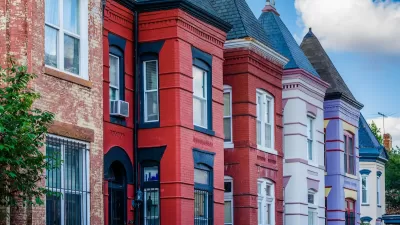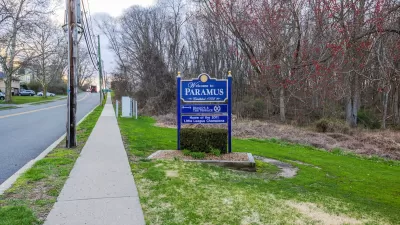The city’s comprehensive, neighborhood-focused housing strategy focuses on identifying properties and land that can be repurposed for housing and encouraging development in underserved neighborhoods.

New research from the Harvard Kennedy School’s Data-Smart City Solutions project analyzed how the city of Atlanta uses a neighborhood-based approach and data to improve its housing services and preserve affordable housing in the city.
As Jabari Simama explains in a piece for Governing, “Harvard identified four key components of Atlanta’s approach: collaboration across sectors, identifying developable properties, strengthening governance and planning for the future.”
According to the Atlanta mayor’s chief policy officer, Courtney English, the city’s approach to housing focuses on “neighborhood health” in some of the city’s most distressed neighborhoods. A group called the Affordable Housing Strike Force, which includes leaders from the housing authority, a land bank, the school district, the city’s transportation department, and nonprofits, was created to coordinate efforts. “The strike force identified approximately 2,000 undeveloped acres that could be repurposed for housing, categorizing the properties on factors such as development readiness, remediation needs and proximity to transit.”
In three years, the city built 7,000 new housing units and has 4,000 more in the pipeline. The city is also acquiring office buildings to convert to housing and is creatively using city-owned properties to add housing. “When asked what he would say to public officials who believe this model wouldn’t work in their cities, English pointed to the long-term cost of inequity — that economic stability depends on building and maintaining a strong middle class and preventing widespread poverty and violence that drive residents out of a city.”
FULL STORY: Atlanta's Housing Approach Offers a Model for Other Cities

Planetizen Federal Action Tracker
A weekly monitor of how Trump’s orders and actions are impacting planners and planning in America.

Maui's Vacation Rental Debate Turns Ugly
Verbal attacks, misinformation campaigns and fistfights plague a high-stakes debate to convert thousands of vacation rentals into long-term housing.

Restaurant Patios Were a Pandemic Win — Why Were They so Hard to Keep?
Social distancing requirements and changes in travel patterns prompted cities to pilot new uses for street and sidewalk space. Then it got complicated.

In California Battle of Housing vs. Environment, Housing Just Won
A new state law significantly limits the power of CEQA, an environmental review law that served as a powerful tool for blocking new development.

Boulder Eliminates Parking Minimums Citywide
Officials estimate the cost of building a single underground parking space at up to $100,000.

Orange County, Florida Adopts Largest US “Sprawl Repair” Code
The ‘Orange Code’ seeks to rectify decades of sprawl-inducing, car-oriented development.
Urban Design for Planners 1: Software Tools
This six-course series explores essential urban design concepts using open source software and equips planners with the tools they need to participate fully in the urban design process.
Planning for Universal Design
Learn the tools for implementing Universal Design in planning regulations.
Heyer Gruel & Associates PA
JM Goldson LLC
Custer County Colorado
City of Camden Redevelopment Agency
City of Astoria
Transportation Research & Education Center (TREC) at Portland State University
Jefferson Parish Government
Camden Redevelopment Agency
City of Claremont





























